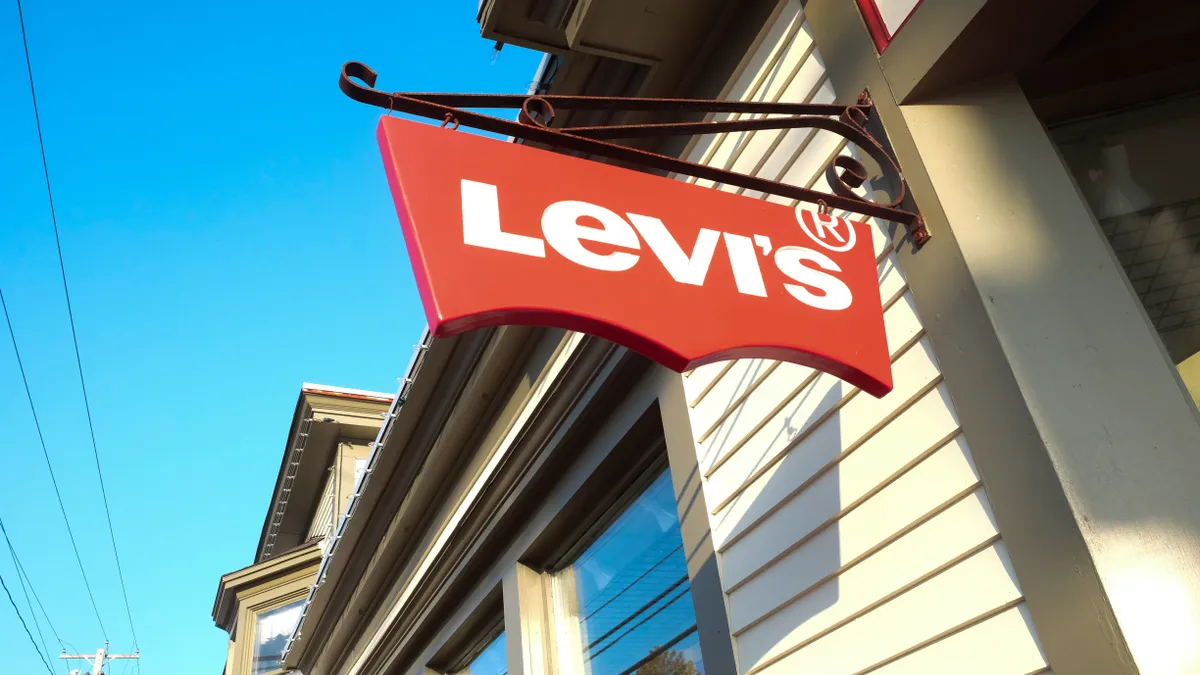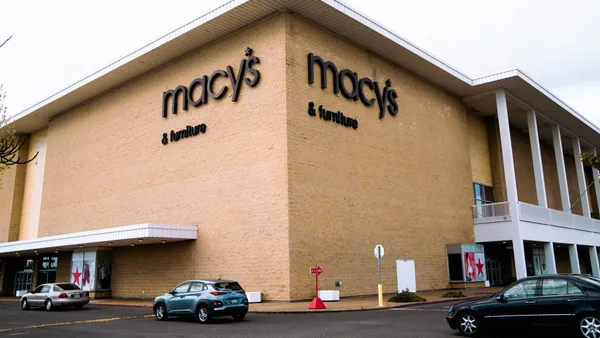Dive Brief:
-
Levi Strauss & Co. has tapped Burberry executive Gianluca Flore as chief commercial officer for the Levi’s brand, part of a direct-to-consumer push at the flagship denim label, according to a company press release.
-
He arrives July 29 and will report to CEO Michelle Gass. His most recent post at Burberry was also chief commercial officer. At Levi’s he will be responsible for the brand’s global commercial operations across all channels, including stores, e-commerce and wholesale.
-
Flore has also had leadership roles at luxury group Kering, including CEO of Brioni, and at Bottega Veneta, where he led double-digit revenue increases across wholesale and retail channels.
Dive Insight:
Flore’s jump from the high echelon of luxury to a maker of quintessentially casual denim jeans is a testament to Levi’s iconic place in global fashion — something that was also underscored recently by the song “Levii’s Jeans” on Beyoncé’s new album, Cowboy Carter.
“It’s an honor to join a storied company like LS&Co. at this exciting time for the Levi’s brand, which continues to be the unequivocal category leader, firmly at the center of culture,” Flore said in a statement.
In a statement announcing Flore’s hire, Gass emphasized the brand’s recent emphasis on direct-to-consumer sales, via company-owned stores as well as e-commerce, calling him “the right leader to help us usher in the company’s next chapter of stakeholder value creation.”
“I am delighted to welcome Gianluca to LS&Co. at this transformational moment for the company, as we pivot to become a DTC-led, denim lifestyle leader,” she said, noting his “exceptional track record of delivering profitable growth at iconic fashion brands.”
Perhaps crucially, though, Flore will also oversee wholesale, which has been a weak point for Levi’s in recent quarters and has proven to be a more important channel than many brands appreciate. In its most recent quarter, an 18% wholesale decline helped drive a nearly 8% net revenue drop; direct-to-consumer revenue (stores and online) rose 7% in the period, contributing a record 48% of total net revenues, and e-commerce grew 13%.
Last month, Nike acknowledged flaws in its own DTC-first strategy and the need to lean back into wholesale and product innovation. In recent years, as more brands have turned toward their DTC operations in an effort to grow margins and sales, BMO Capital Markets analysts led by Simeon Siegel found that such moves often fall short in those goals. Even when it comes to margins, the wholesale channel was often actually more lucrative, they found.












